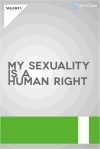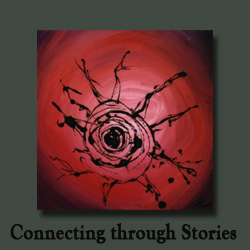 Earlier this week, the Nigerian Same-Sex Marriage bill had its second reading in the House of Representatives. The bill, if passed, will prohibit marriage or civil union entered into between persons of same-sex.
Earlier this week, the Nigerian Same-Sex Marriage bill had its second reading in the House of Representatives. The bill, if passed, will prohibit marriage or civil union entered into between persons of same-sex.
The proposed legislation also imposes up to 10 years’ imprisonment and a fine on anyone who “witnesses”, “aids” or “abets” same-sex relationships. The bill carries similar sentences for the establishment of gay clubs, and for any activity seen as supporting gay rights. The legislation does feel very much a sham, because not only is it currently illegal to engage in ‘homosexual activity’ in Nigeria, it is also a huge cultural taboo.
As I reflect on the impact of this piece of legislation, I cannot help but remember my trip to Nigeria a few months ago. I had travelled to Nigeria to attend my mother’s funeral and of the many emotionally charged moments that I experienced during that trip, there is one encounter that still affects me deeply.
My mother’s pastor had asked to see me a few days after the funeral. I was reluctant to go, as our conversation shortly after my arrival in Nigeria had left me off-balance and hurt. In that conversation, he had mentioned to me that my mother had told him ‘all about me’ and that I had made her ‘unhappy and miserable’ and that it was that misery that had killed her.
After much persuasion, I made the second visit, accompanied by family members. I’m not sure what I expected from the visit, but I know that at the back of my mind I had the fantasy that it was going to be a nourishing and nurturing occasion – on some level…. how naïve of me!
In the conversation that unfolded that afternoon, I was told that even though I was in a relationship with a man, I still had a responsibility to get married to a woman and have a child. I was told that it was expected of me, and my mother would not rest in peace until that was done. I was told that getting married to a woman did not mean that I end my relationship with my partner. The plan was that my ‘to be wife’ would stay in Nigeria and I visit her once or twice a year. A family member who was present during the discussion offered to look after the child for me. I was reminded how ‘my behaviour was a cultural taboo’ and that men in my situation in Nigeria do get married. The only time I challenged what was said that afternoon was when I mentioned that it would not be right for me to be deceptive to a woman and get married to her. At which point, I was told that there were a number of women around who would simply love to get married and have a child.
I was told that I did not have to give my decision in that moment, but that they would expect it soon…..
The conversation that afternoon lasted over 1-hour. During that time, none of us used the word ‘gay’ or ‘homosexual’, but it was clear to all what was being discussed. As I reflect on the conversation, I remember that all I did that afternoon was listen. I said very little because I knew that in a few days I would be leaving the country and would never have to see anyone in that room again, if I chose not to. As I reflect on that afternoon, I cannot help but think of the many gay men or lesbians in Nigeria who have to face similar situations on an almost daily basis and have no opportunity to leave the country.
As I reflect on that afternoon, I remember feeling sad that none of the people at that meeting stood up for me, challenged the pastor or told me that I was okay exactly as I am. And as I reflect on that, I cannot help but think of the many gay men or lesbians in Nigeria who do not have support from their family or loved ones for being different.
What I know is that regardless of whether this piece of legislation passes or not, the issue is a complex one. The law cannot dictate whether parents should accept and love their children exactly as they are. The law cannot legislate whether friends should accept each other exactly as they are.
What I do know is that legislation did not play a part in how the conversation with my mum’s pastor unfolded that afternoon. Yes, a part of me feels that culture played a huge part in what was said. But what I also know is that choice played a huge part. I believe we all have a choice as to whether we behave in a loving and nurturing way towards each other…. regardless of whether the other person is not exactly like us.
I do hope that the families and friends of the gay men and lesbians in Nigeria do wake up and finally start seeing that not only is sexuality a human right, but that everyone deserves to be loved, exactly as they are….
OutTales 2012






Nov 19, 2012 @ 15:00:06
The underlying factor here is ability to love without conditions. Ironically, this is exactly what Nigerian pastors, many parents,etc, have proven incapable of doing.
There was a case of a Nigerian University lecturer dt so much loved his gay son dt founded a church&the man was bullied, embarrassed&almost pilloried by a section of Nigerians, even those dt ought to know better until his son found solace&love in England, his country of birth.
Even Jesus Christ never for once condemned any gay, etc in d bible&no record of his reference to it was recorded in the whole gospel, except when he castigated sin against the spirit&how it would be worse for blasphemers than the days of Sodom&Gomorrah. So where did these agents of hate-gospel got their encouragement from.
It is from d same old testament dt encourages them to flay people of different religion, hate those dt eat pork, etc…the verse thinkers would know dt both bible&Koran contain words of ‘God’ and that of men that wanted them in bondage&hatred of their fellow human beings they should never have hated.